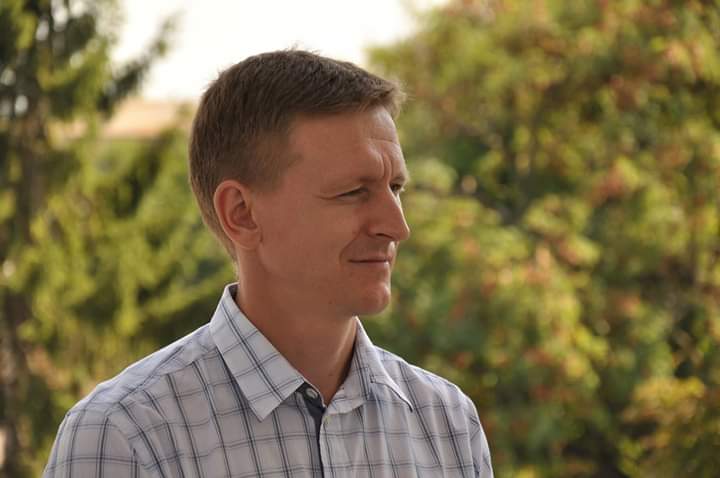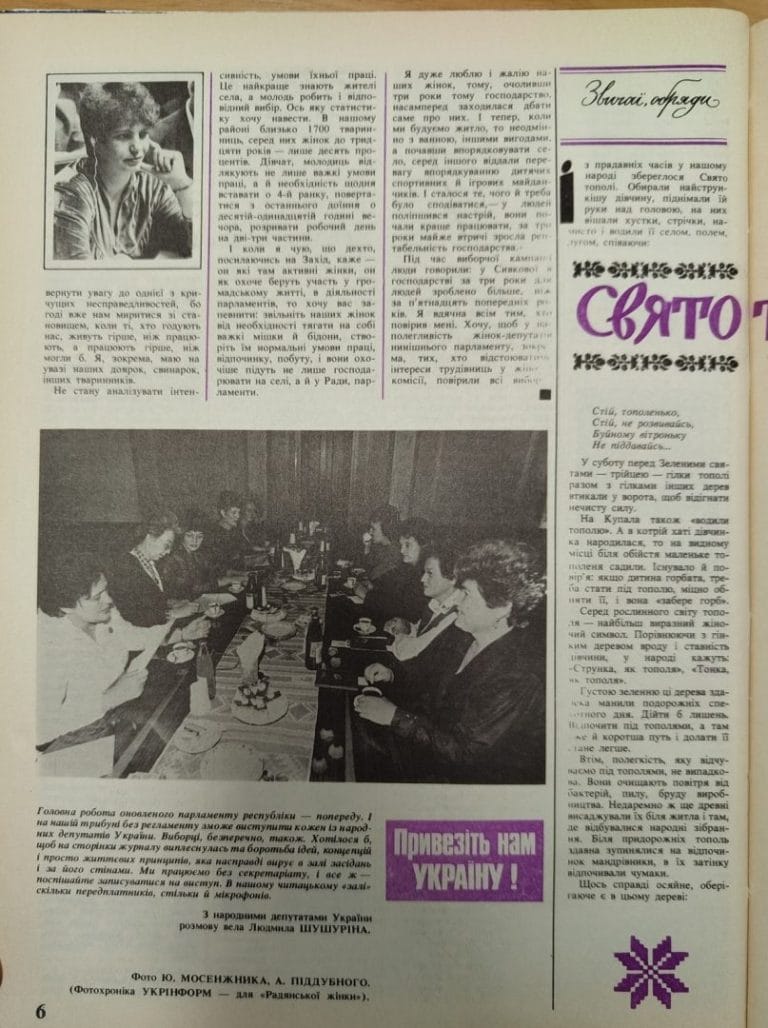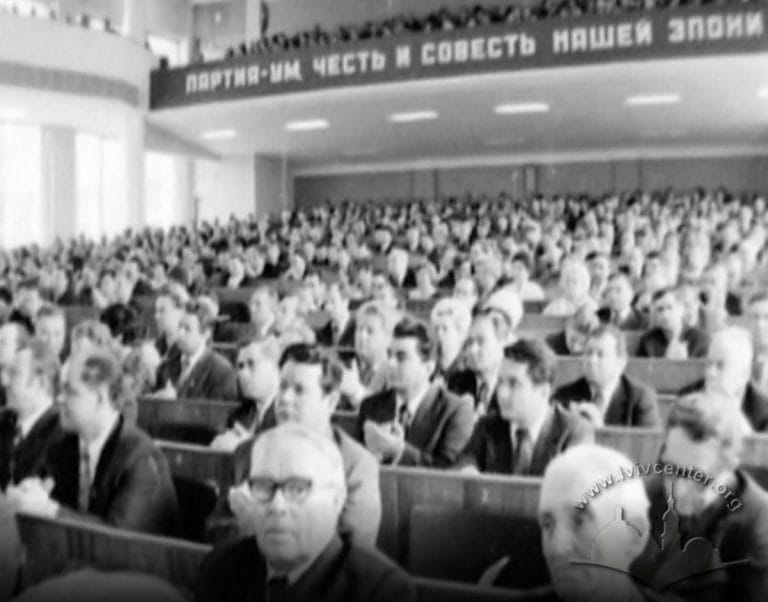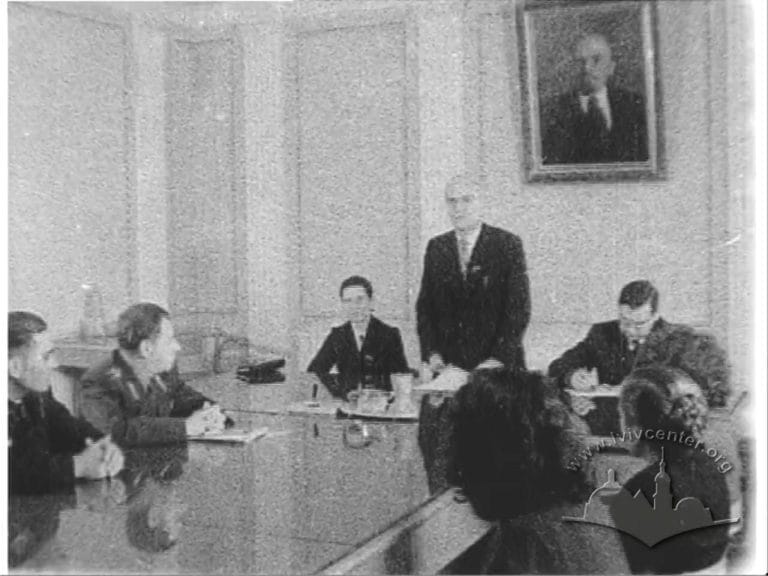Related sources:

Gender and Power: The Communist Party of Ukraine on Women in Leadership, 1960
The Resolution of the Secretariat of the Central Committee of the Communist Party of Ukraine (CPU) “On Serious Shortcomings in the Promotion of Women to Leadership Positions”, dated July 4, 1960, noted a significant gender imbalance in Soviet state administration. The CPU placed the blame for the insufficient presence of women in leadership on party committees and the heads of Soviet and economic governing bodies, who, it stated, “underestimate the full importance of this issue.” In the document, absolute and relative figures were presented together only when describing women’s educational level, whereas in all other cases, the share of women was given only in relative terms. Such manipulation of statistics made it impossible...

Valentyna Shevchenko on Her Leading the Presidium of the Supreme Council of the Ukrainian SSR
Valentyna Shevchenko (1935–2020) worked as a senior pioneer leader and a secondary school teacher, later holding leadership positions in the Komsomol and party bodies of the Ukrainian SSR. She served as Deputy Minister of Education and as head of the Society for Friendship and Cultural Relations with Foreign Countries. During the Perestroika period, she rose to the position of Chairwoman of the Presidium of the Supreme Council of the Ukrainian SSR. In independent Ukraine, Valentyna Shevchenko led several civic organizations engaged in humanitarian issues. Her memoirs cover the period from her childhood to the first decade of Ukrainian independence, becoming more detailed as they approach the present. She explained that her motivation for...
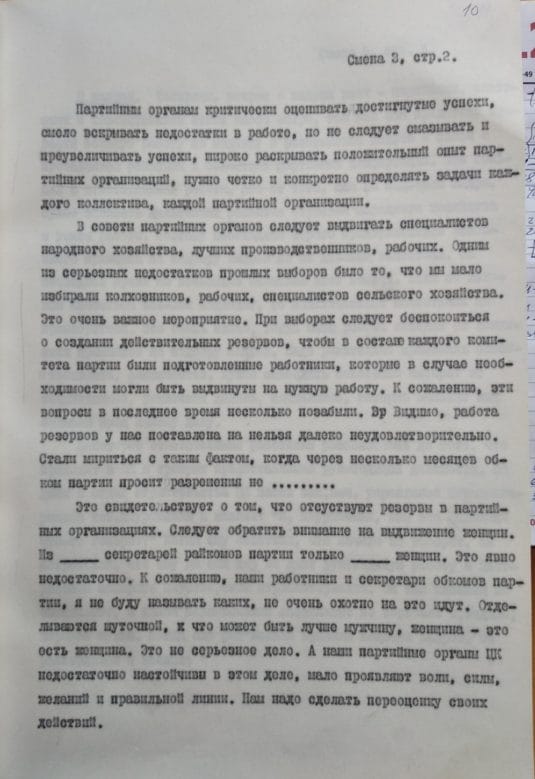
Gender and Soviet Cadre Policy in 1960s: Transcript of First Secretaries of Regional Party Committees Meeting
The meeting of the heads of regional party committees and the leaders of republican executive bodies, held on November 17, 1965, was dedicated to organizational and party work within the CPU (Communist Party of Ukraine) in preparation for the “worthy reception of the 23rd Congress of the CPSU,” scheduled for March 1966. Attendees heard reports from the head of the Ukrainian party organization, Petro Shelest, as well as from nine regional CPU committees. In his speech, an excerpt of which is published below, Petro Shelest addressed preparations for what he called a “momentous event in our lives,” a “landmark date in the life of our Party and our people – the 23rd Congress...

Volodymyr Shcherbytskyi on Male Domination in Soviet Leadership, 1977
At a meeting with the heads of the Communist Party of Ukraine and state bodies, as well as regional leaders, current issues of the republic and planning for 1978 were discussed. After several speakers, the First Secretary of the Central Committee of the CPU, Volodymyr Shcherbytskyi, took the floor. Listing shortcomings in the current implementation of economic plans and in planning for the coming year, he called on those present to consider candidates for election at the upcoming party conferences and to create a reserve of personnel, particularly among women. Among the one hundred people present at the meeting, there was only one woman — Domnikiia Yosypivna Protsenko, head of the Kherson Regional...
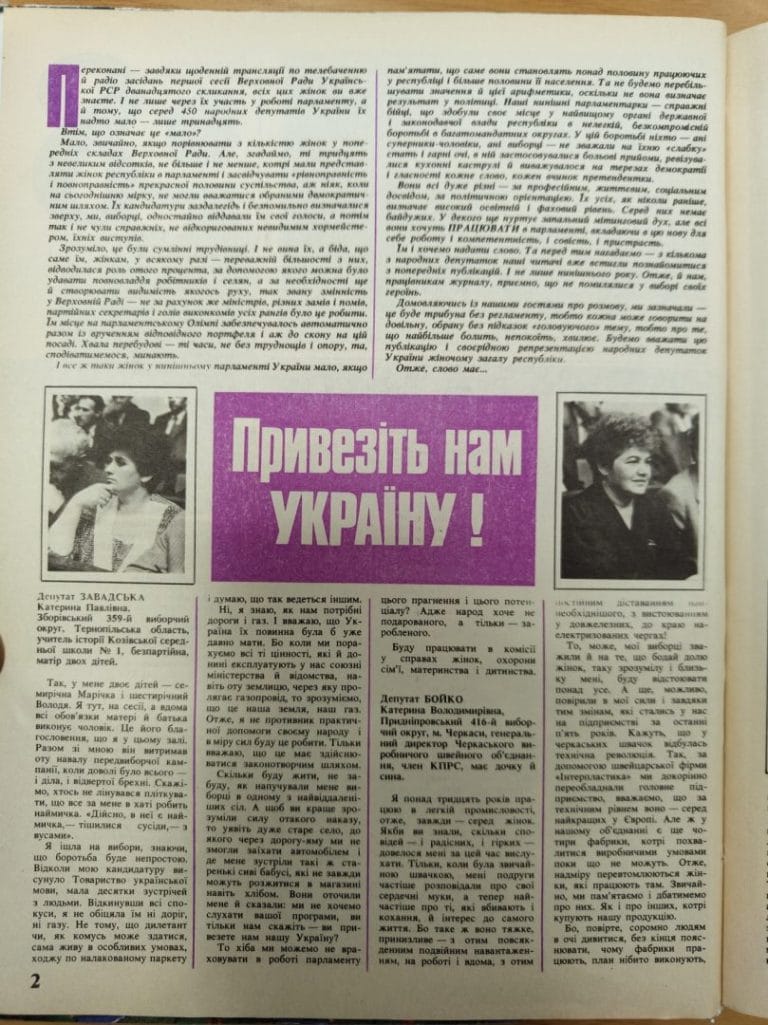
Women Deputies about their Goals in the Supreme Soviet of the Ukrainian SSR, 1990
After the elections to the Supreme Soviet of the Ukrainian SSR of the 12th convocation in March 1990, female representation in parliament decreased from 234 (36%) deputies to 13 (2.7%). One of the reasons for this was the introduction of alternative voting, which brought real competition to the elections, and thus the practice of previous "women's quotas" no longer worked. Correspondent Lyudmila Shushrina, in the preface to the article "Bring us our Ukraine!", bitterly acknowledged the formal role of women in the previous convocations of the supreme councils, where their presence was meant to demonstrate "equality and full citizenship," creating the appearance of the workers' and peasants' sovereignty, but they rarely got re-elected...
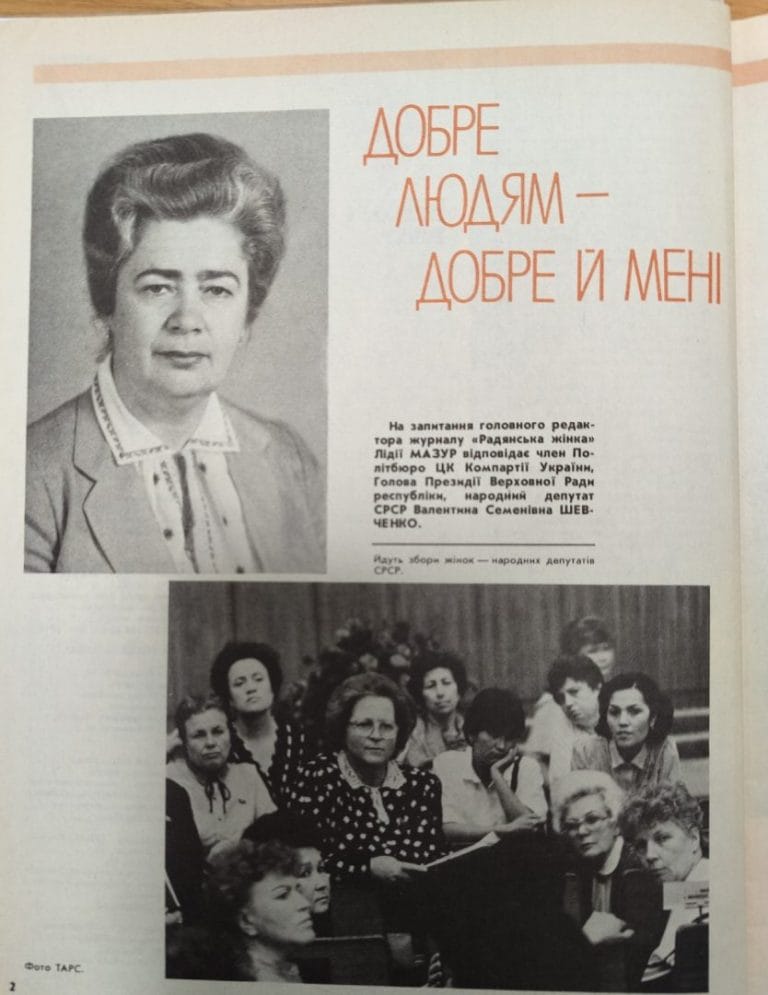
Chair of the Presidium of the Supreme Soviet of the Ukrainian SSR Valentyna Shevchenko on Women in Politics: An Interview from 1989
Valentyna Shevchenko (1935–2020) had a distinguished Soviet political career. She began her professional path in 1954 as a school Pioneer leader in Kryvyi Rih. Three years later, she transitioned to work in the Komsomol, and later moved into Party structures. In 1962, she assumed the position of Secretary of the Central Committee of the Leninist Communist Youth Union of Ukraine (LKSMU). From 1975 to 1985, Shevchenko served as Deputy Chair of the Presidium of the Supreme Soviet of the Ukrainian SSR, and in 1985 she became its Chair — making her, under the 1978 Constitution of the Ukrainian SSR, the head of the republic’s highest state authority. Her interview, published in the newspaper...
Show more
Collapse all
After the end of World War II, Soviet authorities returned to a conservative gender policy that emphasized women's maternal roles. [1] This approach was "justified" by the severe demographic losses of the war. In 1944, the honorary title Mother Heroine and the order of the same name were introduced for women who gave birth to and raised ten or more children, while the Order of Maternal Glory was created for mothers of at least seven children. In 1956, paid maternity leave for urban women was nearly doubled to 112 days, and in 1964, this benefit was extended to rural women. By 1981, paid parental leave had expanded to a full year. However, the...
In addressing the causes of unlawful actions committed by high-ranking officials in the 1940s and 1960s, the authorities often attributed them to the lingering influence of pre-revolutionary capitalist mentalities among certain managers. This explanation lost credibility over time, as by the 1970s and 1980s, the leadership consisted largely of individuals born and fully socialized within the Soviet Union, supposedly free from the flaws of other, non-communist societies. In this module, Viktor Krupyna uses unpublished archival materials and available source collections to examine the widespread abuse of power by Soviet officials in the Ukrainian SSR in 1945-1991, its causes, scope, and consequences.
The Soviet Union positioned itself as a society of social equality, where the elimination of human exploitation was said to have achieved harmony in class relations. The eradication of social contradictions between the “top” and “bottom” (in Soviet terminology, the “exploiters” and “exploited”) was widely promoted as an indisputable and irreversible achievement of the Soviet state. Yet, this created a paradox: while this ideal was publicly championed, the significant social gap between the people and the so-called “people's power” was a reality that remained unacknowledged. This module by Viktor Krupyna focuses on the financial privileges of the Ukrainian Soviet nomenklatura.

